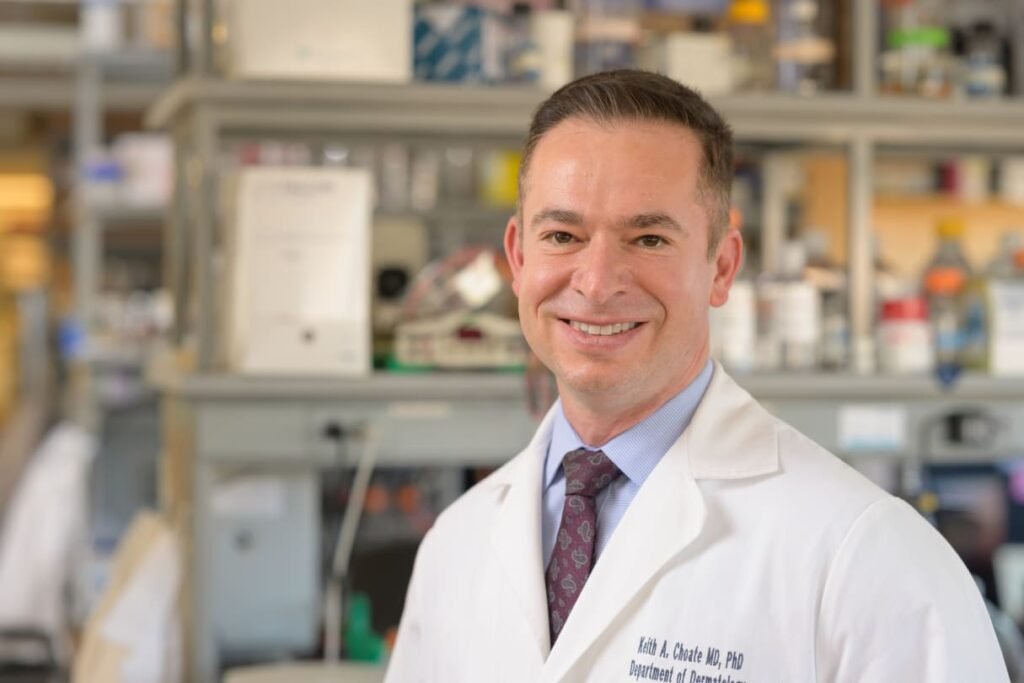Unraveling Skin Conditions: A Scientific Approach to Dermatology
Understanding Skin Diseases Through Science
Skin conditions can often be more than just visible symptoms like rashes or discoloration. Dr. Keith Choate, a leading expert in dermatology, emphasizes the importance of a deeper scientific perspective when diagnosing and treating skin diseases. For many, searching for answers to debilitating skin conditions can feel like a frustrating journey filled with misdiagnoses and ineffective treatments. Dr. Choate suggests that by examining the underlying biology—including genetics and cellular function—patients may finally find relief.
The Importance of In-Depth Analysis
According to Dr. Choate, who serves as the Chair of Dermatology at Yale Medicine, many patients arrive having already consulted multiple healthcare providers. They often carry with them a history of failed treatments and dwindling hope. This is where a detailed investigative approach can make all the difference.
“We frequently are the last stop on a patient’s search for answers,” Dr. Choate shares.
The Scope of Skin Diseases
Skin diseases are not uncommon in the United States, affecting approximately 84.5 million Americans. These range from mild conditions like acne to serious illnesses such as melanoma. Understanding that these conditions go beyond visible symptoms can lead to better treatment outcomes.
- Common Skin Conditions: Acne, eczema, psoriasis.
- Serious Skin Conditions: Melanoma, ichthyosis, and other rare skin disorders.
Innovative Discoveries in Dermatology
Dr. Choate is not only a clinician but also a pioneer in dermatological research. His scientific work has contributed to the identification of genetic defects in over 18 rare skin disorders. Notably, his research on ichthyosis—a condition characterized by dry, scaly skin—has garnered international recognition.
Complicated Cases and Unique Solutions
Dr. Choate often addresses the most complicated and challenging skin conditions, many of which are previously unknown or poorly defined. His innovative approach combines clinical experience with laboratory research, allowing for unique treatment solutions that have the potential to change lives.
- Key Areas of Focus:
- Genetic research
- Laboratory analysis
- Patient-centered treatment plans
“These are essentially conditions that are unknown, undescribed, and difficult to treat,” Dr. Choate explains. “But often, there are solutions."
The Role of Collaboration in Dermatology
The path to effective treatment is seldom straightforward. Collaboration between dermatologists and geneticists is crucial when it comes to dealing with complex skin disorders. Gathering comprehensive patient data and conducting thorough laboratory research can yield insights that guide effective interventions.
How Science Empowers Dermatology
Combining scientific inquiry with dermatological expertise allows specialists like Dr. Choate to look beyond the surface:
- Laboratory Research: Conducting testings to identify underlying causes.
- Interdisciplinary Approach: Utilizing expertise from genetics and pathology.
- Personalized Treatment Plans: Tailoring solutions based on specific genetic and biological findings.
Conclusion: A New Era in Dermatological Treatment
Dr. Keith Choate’s work epitomizes the transformative potential of blending science with clinical practices in dermatology. For those struggling with persistent skin conditions, seeking an expert who takes a scientific approach may be the key to unlocking effective treatment pathways and restoring hope.
Additional Resources
By committing to a thorough and scientifically informed methodology, Dr. Choate and his team provide essential insights and solutions for patients, turning despair into empowerment in the face of difficult skin conditions.


